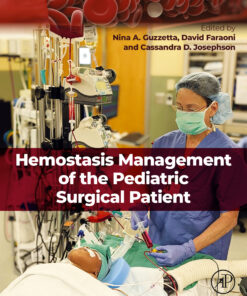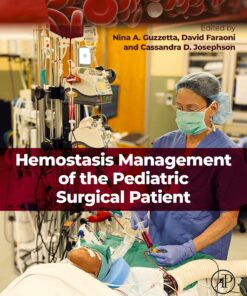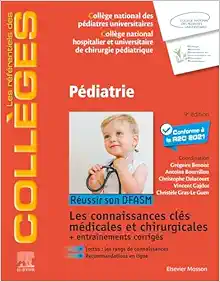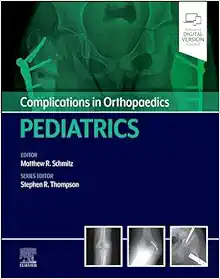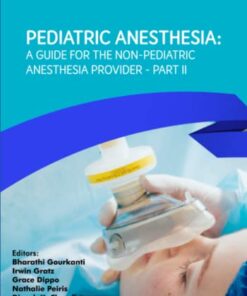Understanding Pediatric Surgery: What Parents Need to Know
Learn More About Pediatric Surgery Today!
If you or someone you know is considering pediatric surgery, it’s important to understand the risks and benefits of the procedure. To help you make an informed decision, visit SurgeryBook.net. This comprehensive resource provides detailed information about pediatric surgery, including types of procedures, potential complications, and recovery times. You can also find helpful tips on how to prepare for surgery and what to expect during the process. With this knowledge, you can make the best decision for your child’s health and well-being.
PEDIATRIC SURGERY
50 Landmark Papers every Pediatric Surgeon Should Know (Original PDF from Publisher)
PEDIATRIC SURGERY
50 Landmark Papers every Pediatric Surgeon Should Know (EPUB)
PEDIATRIC SURGERY
Atlas of Pediatric Head and Neck and Skull Base Surgery (EPUB)
PEDIATRIC SURGERY
PEDIATRIC SURGERY
Hemostasis Management of the Pediatric Surgical Patient (EPUB)
PEDIATRIC SURGERY
Key Clinical Topics in Paediatric Surgery, 2nd edition (Original PDF from Publisher)
PEDIATRIC SURGERY
Pédiatrie: Réussir ses EDN, 9th Edition (True PDF From Publisher)
PEDIATRIC SURGERY
Complications in Orthopaedics: Pediatrics (True PDF from Publisher)
PEDIATRIC SURGERY
PEDIATRIC SURGERY
PEDIATRIC SURGERY
PEDIATRIC SURGERY
PEDIATRIC SURGERY
PEDIATRIC SURGERY
PEDIATRIC SURGERY
PEDIATRIC SURGERY
Vascular Access in Neonates and Children (Original PDF from Publisher)
Introduction
Understanding Pediatric Surgery: What Parents Need to Know is an essential guide for parents of children who may need surgery. This comprehensive guide provides information on the types of pediatric surgeries, the risks and benefits associated with them, and how to prepare for a successful outcome. It also offers advice on how to support your child before, during, and after surgery. With this knowledge, parents can make informed decisions about their child’s care and ensure they receive the best possible treatment.
Overview of Pediatric Surgery: Types, Risks, and Benefits
Pediatric surgery is a specialized field of medicine that focuses on the surgical care of infants, children, and adolescents. It involves the diagnosis, treatment, and management of a wide range of conditions, from birth defects to trauma and cancer. Pediatric surgeons are specially trained to provide comprehensive care for children, taking into account their unique physical, emotional, and developmental needs.
The types of pediatric surgery vary depending on the condition being treated. Common procedures include hernia repair, appendectomy, tonsillectomy, circumcision, and cleft lip and palate repair. Other surgeries may be necessary to treat birth defects, such as congenital heart defects or spina bifida, or to correct deformities caused by trauma or disease. In some cases, pediatric surgeons may also perform organ transplants or reconstructive surgery.
As with any type of surgery, there are risks associated with pediatric surgery. These include infection, bleeding, and reactions to anesthesia. Additionally, some procedures may require long recovery times and involve significant lifestyle changes. However, the benefits of pediatric surgery can be life-changing. Surgery can help correct birth defects, improve quality of life, and even save lives.
Overall, pediatric surgery is an important part of medical care for children. It can help diagnose and treat a variety of conditions, from birth defects to trauma and cancer. While there are risks associated with any type of surgery, the potential benefits can be life-changing. Pediatric surgeons are specially trained to provide comprehensive care for children, taking into account their unique physical, emotional, and developmental needs.
Preparing for a Pediatric Surgery: What to Expect
Preparing for a pediatric surgery can be a stressful experience for both the child and their family. It is important to understand what to expect before, during, and after the procedure so that everyone involved can feel more comfortable and prepared.
Before the surgery, the child’s doctor will likely perform a physical exam and order any necessary tests or imaging studies. The doctor may also discuss the risks and benefits of the procedure with the family. During this time, it is important to ask questions and voice any concerns.
The day before the surgery, the child should not eat or drink anything after midnight. This helps to ensure that the child does not have any food or liquids in their stomach during the procedure. The child should also take a bath or shower the night before the surgery to reduce the risk of infection.
On the day of the surgery, the child should arrive at the hospital or surgical center early. They will need to change into a hospital gown and may receive an IV line to provide fluids and medications. The child may also receive a sedative to help them relax before the procedure.
During the surgery, the child will be monitored closely by the medical team. The surgeon will make an incision and then perform the necessary procedure. Depending on the type of surgery, the child may be under general anesthesia or local anesthesia.
After the surgery, the child will be taken to a recovery room where they will be monitored until they are awake and alert. The child may experience some pain and discomfort, but this can usually be managed with medication. The child may also need to stay in the hospital for a few days to recover.
Preparing for a pediatric surgery can be a difficult experience, but understanding what to expect can help to ease some of the stress. It is important to talk to the doctor about any questions or concerns and to follow all pre-operative instructions carefully. With the right preparation, the child can have a safe and successful surgery.
Post-Surgery Care: Pain Management and Recovery
Post-surgery care is an important part of the recovery process. It involves managing pain, monitoring healing, and providing support to help patients return to their normal activities as quickly as possible. Pain management and recovery are two key components of post-surgery care.
Pain management is essential for a successful recovery. Pain can be managed with medications, physical therapy, and other treatments. Medications such as opioids, nonsteroidal anti-inflammatory drugs (NSAIDs), and muscle relaxants can be used to reduce pain and inflammation. Physical therapy can help improve range of motion and strength, while also reducing pain. Other treatments such as acupuncture, massage, and heat or cold therapy may also be beneficial.
Recovery is the process of returning to normal activities after surgery. It is important to follow the doctor’s instructions for activity level and rest. Patients should avoid strenuous activities until they have been cleared by their doctor. Gentle exercise such as walking or swimming can help promote healing and reduce pain. Eating a healthy diet and getting plenty of rest are also important for recovery.
Post-surgery care is essential for a successful recovery. Pain management and recovery are two key components of post-surgery care. Medications, physical therapy, and other treatments can be used to manage pain. Recovery involves following the doctor’s instructions for activity level and rest, gentle exercise, and eating a healthy diet. With proper post-surgery care, patients can return to their normal activities as quickly as possible.
Understanding the Role of Anesthesia in Pediatric Surgery
Communicating with Your Child’s Surgeon: Questions to Ask
Communicating with your child’s surgeon is an important part of the process when it comes to making sure your child receives the best possible care. It is essential to ask questions and get answers that you understand in order to make informed decisions about your child’s health. Here are some questions to consider asking your child’s surgeon:
1. What is the diagnosis? Make sure you understand the diagnosis and what it means for your child’s health.
2. What are the treatment options? Ask about all available treatments, including any non-surgical options.
3. What are the risks and benefits of each option? Make sure you understand the potential risks and benefits of each option so you can make an informed decision.
4. How long will the surgery take? Knowing how long the surgery will take can help you plan for any necessary childcare or other arrangements.
5. What type of anesthesia will be used? Ask about the type of anesthesia that will be used and any potential side effects.
6. What should I expect during recovery? Ask about the expected recovery time and any special instructions you should follow.
7. Are there any lifestyle changes I should make? Ask if there are any lifestyle changes you should make to ensure a successful recovery.
8. What follow-up care is needed? Ask about any follow-up care that may be needed after the surgery.
9. What are the long-term implications of this surgery? Ask about any long-term implications of the surgery, such as any potential complications or side effects.
By asking these questions, you can ensure that you have all the information you need to make an informed decision about your child’s health. Communicating with your child’s surgeon is an important part of the process, and it is essential to ask questions and get answers that you understand.
Conclusion
Understanding pediatric surgery can be a daunting task for parents. However, it is important to be informed and prepared for the process. By researching the procedure, talking to your child’s doctor, and understanding the risks and benefits of the surgery, you can make an informed decision about whether or not to proceed with the surgery. Additionally, it is important to ensure that your child is comfortable and safe throughout the entire process. With the right information and support, parents can feel confident in their decisions regarding pediatric surgery.








